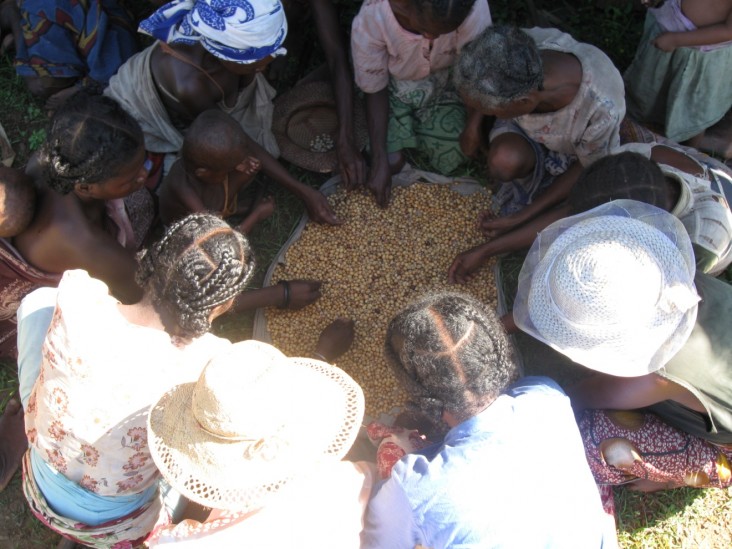
In a small village in southeastern Madagascar, a group of 20 single women are working together to increase their incomes and their independence. For the past two years, they have benefited from a USAID program to improve food security and nutrition among nearly 100,000 vulnerable households.
Previously, the women struggled to feed their families and meet basic nutritional needs. When they needed money for school fees, medicine, or food, they had no choice but to take out loans with interest rates of 50 to 100 percent. They felt marginalized and undervalued in their communities because they were low-income single mothers with few resources.
The women now receive regular training from a USAID-supported agricultural extension worker who teaches them farming techniques, marketing, and problem-solving. They started by producing and selling bambara nuts, a local legume similar to peanuts, and expanded to carrots, green beans, sweet potatoes, pumpkins, and cassava. Using better agricultural practices including basket composting and mulching have allowed them to grow foods that are profitable and nutrient-rich such as melons, sweet potatoes, and cassava.
USAID has also supported the development of village savings and loans groups. These locally-managed structures within the program allow members to meet basic household needs for food, health care, and emergencies. They allow members to purchase agricultural supplies for the future.
“This program has transformed our lives,” said Marguerite, president of the Women’s Farmer Field School in the commune of Manambotra South. In total, the program has trained 50,000 farmers in Madagascar, nearly half of whom are women. Some farmers have increased their yields by 400 percent using technologies and seeds that the program has promoted. Among the 13,000 village savings and loan members, groups have collectively saved over $170,000 in 2011 and reduced the average number of months they suffer from food insecurity.
The program is implemented by a consortium of organizations in Madagascar, including the Adventist Development and Relief Agency, Cooperative for Assistance and Relief Everywhere, Inc., Catholic Relief Services, and Land O'Lakes International Development Division.







Comment
Make a general inquiry or suggest an improvement.